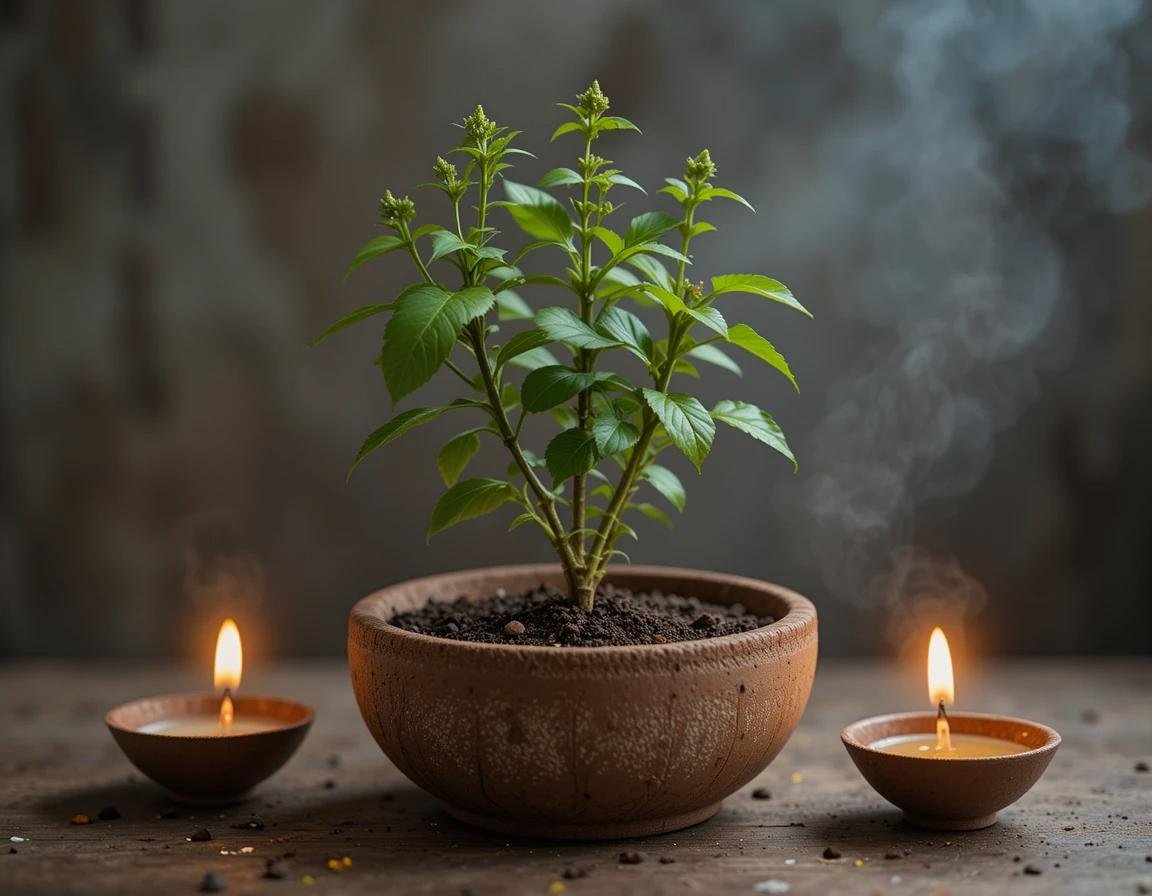Dec 25, Wednesday: Tulsi Puja is observed on December 25th as Tulsi Pujan Diwas, which is significant in Hindu tradition. The Tulsi plant, also known as holy basil, is revered as a manifestation of Goddess Tulsi, an incarnation of Goddess Lakshmi. The plant is believed to bring prosperity and well-being to households. The Tulsi plant is known for its medicinal, symbolic, and medicinal importance. The festival arrives on the Dashami Tithi of the Krishna Paksha in the month of Pausha of the Hindu lunar calendar.
The story behind this festival surrounds Lord Vishnu, Goddess Lakshmi, Vrinda, and a demon king. Tulsi Puja is based on Hindu mythology and revolves around Vrinda, a devoted wife and ardent worshipper of Lord Vishnu. Marrying the demon king Jalandhar, Vrinda’s unyielding chastity made her husband invincible. To counter this, Lord Vishnu, in the guise of Jalandhar, violated her chastity, whereupon Jalandhar lost the battle.
Grieved over the betrayal, Vrinda cursed Vishnu to become a stone-the sacred Shaligram-and killed herself by self-immolation. Moved by her devotion, Lord Vishnu transformed her spirit into the holy Tulsi plant, declaring her eternally sacred and inseparable from Him in worship. The Tulsi Puja celebrates her purity, devotion, and divine connection with Vishnu. It symbolizes harmony, protection, and the sanctity of nature.
Significance of Tulsi Pujan Diwas
Worshipping Tulsi is believed to bestow blessings from Lord Vishnu and Goddess Lakshmi, excelling in spiritual growth and devotion. The Tulsi plant is known for its medicinal properties and its ability to purify the environment, making its worship beneficial for both spiritual and physical health. Hence, nourishing the tulsi plant on this day leads to prosperity and blessings in the house.
What to do on Tulsi Pujan Diwas ?
- Planting Tulsi in your home: It’s auspicious to plant Tulsi in a clean area of your home. It is preferable to plant it in the courtyard or near the entrance, ensuring it receives adequate sunlight. The right amount of sunlight and nourishment from the water will make the plant alive with vibrance and positive vibes.
- Daily Worship: Offer water to the Tulsi plant daily, light a diya (lamp) with desi ghee, and chant appropriate mantras to seek divine blessings.
- Cleanliness: Maintain cleanliness around the Tulsi plant. Clean the area with water, and if possible, use cow dung, which is considered purifying. Have ample light surrounding the area.
- Offering Prasad: After offering Tulsi leaves to the deities, consume them as prasad. It’s recommended to swallow the leaves whole rather than chewing them.
What not to do?
- Avoid Plucking Leaves on Certain Days: Refrain from plucking Tulsi leaves on Ekadashi and Sundays, as it’s considered bad luck.
- Do Not Use Dirty Hands: Always clean your hands before touching the Tulsi plant to maintain its sanctity.
- Avoid Biting Leaves: When you offer the leave over prasad, do not bite Tulsi leaves directly; instead, swallow them whole if consuming them as prasad.
- Proper Disposal: If the Tulsi plant withers, immerse it in a holy river or water body with due rituals, rather than discarding it improperly.
Through keen observation of these age-old traditions during the sacred ritual of Tulsi Puja, devout worshipers sincerely hope to bring into their daily lives the transformative blessings of divine grace, along with an abundance of prosperity and a deep sense of harmony. Keep Reading Questiqa India for more information. Read this article in Hindi at Questiqa Bharat.






